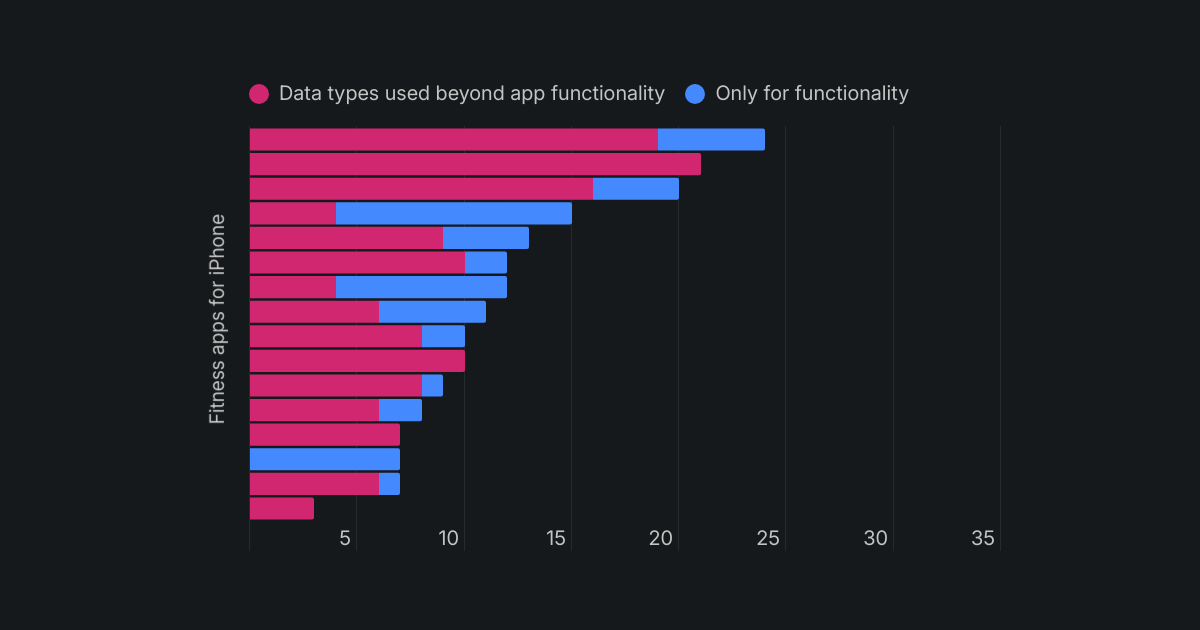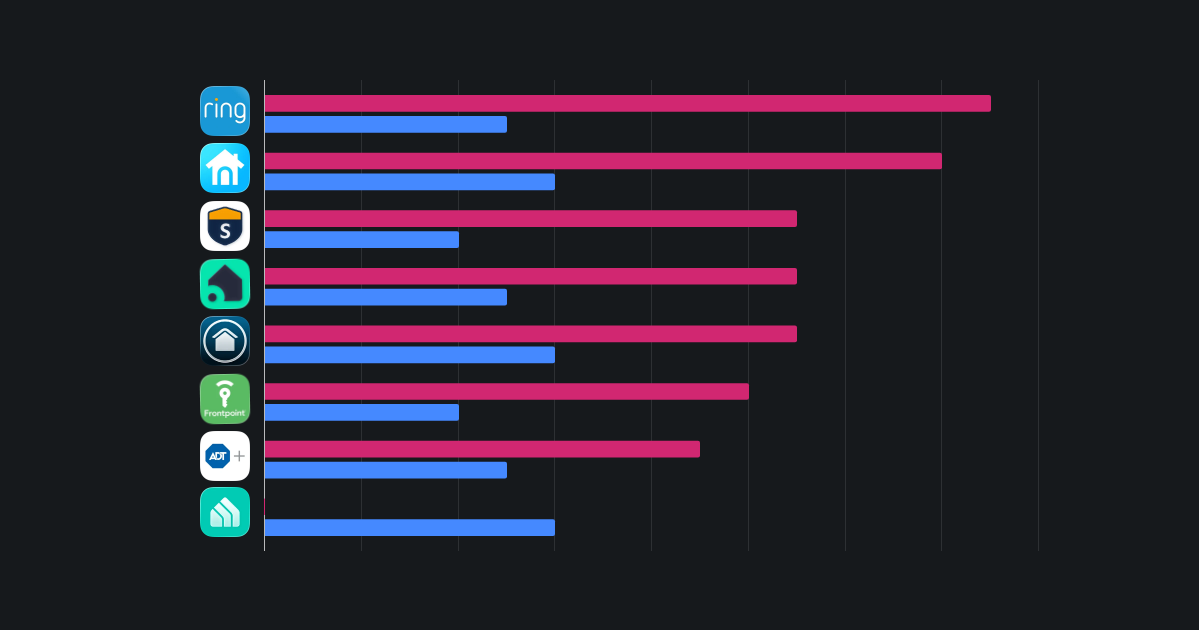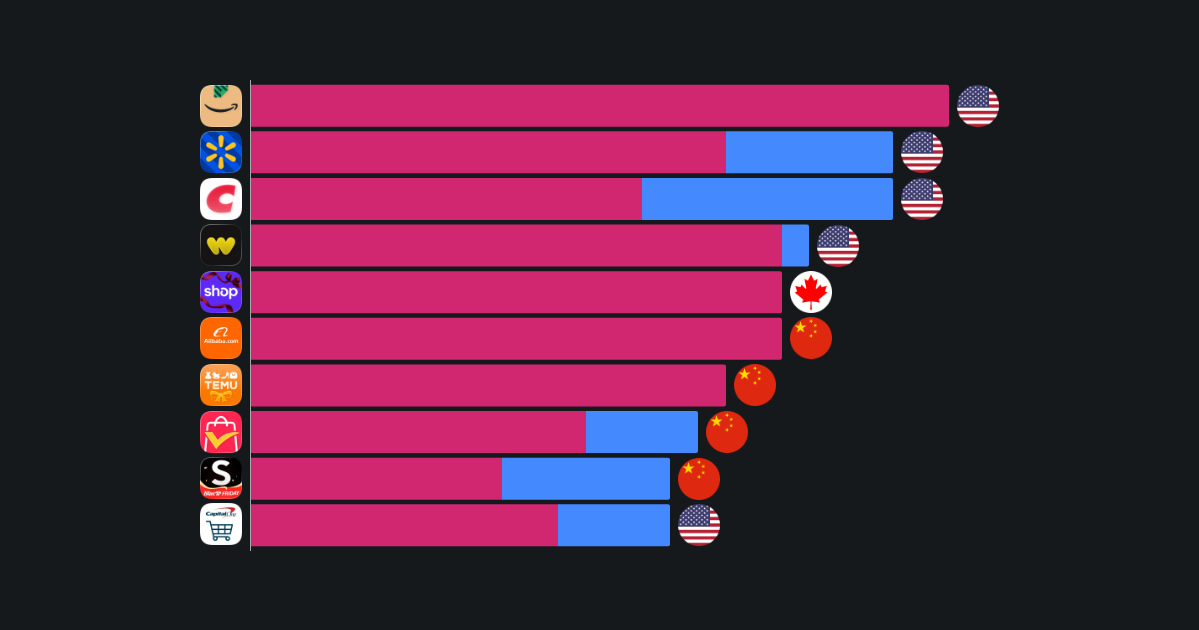digital democracy|digital privacy
Navigation apps track more than your route
To guide us effectively, navigation apps collect detailed information about the world around us, tracking where traffic grows, crowds form, and roads close. But have you ever stopped to wonder what data they’re collecting about you while you’re on the move? Let’s map it out!
Key insights
- We analyzed the five most popular navigation apps. Out of 35 possible data types, these apps collect the following amounts: Google Maps (24), Waze (21), Maps.me (20), Sygic (12), and Apple Maps (11). Google owns both Waze and Google Maps, which take 1st and 2nd place, respectively. Maps.me is in 3rd place and collects only slightly less data than the Google apps, demonstrating that comprehensive data gathering is not exclusive to Big Tech companies. Meanwhile, Sygic distinguishes itself as a more privacy-focused alternative, likely benefiting from its paid premium model rather than heavy reliance on user data, although it does share the data it collects with third parties. Apple Maps, which is pre-installed on iPhones, collects the least amount of data.
- All five apps collect location data, which is expected for navigation. However, the more data-hungry apps (Google Maps, Waze, and Maps.me) supplement it with additional information across many different categories, showing that they retain significant journey, search, and behavior history. For example, Google Maps collects the most data, is pre-installed on Android devices, and gathers the following information about users: name, email address, phone number, physical address, payment info, precise location, coarse location, contacts, emails or text messages, photos or videos, audio data, customer support, other user content, browsing history, search history, user ID, device ID, product interaction, advertising data, other usage data, performance data, other diagnostic data, other data types. This data collection practice far exceeds what’s strictly necessary for navigation.
- Over 3 million users have given Waze an average rating of 4.8 out of 5, making it the highest-rated navigation app among those analyzed. Although it provides a great experience for the average user, this comes at the cost of personal data. Waze is the second most data-hungry navigation app, collecting 21 different data types, all of which are linked to users' identities. Most notably, Waze collects the following data types: name, email, phone number, physical address, photos or videos, audio data, search history, purchase history, and 13 other data types.
- Apple Maps collects the fewest data types, most of which are related to app functionality. However, its user review rating in the app store is quite low at 2.4 out of 5, compared to ratings between 4.6 and 4.8 for the other four apps. While this suggests that Apple Maps may not provide as positive a user experience as its competitors, it is also the most privacy-friendly navigation app, highlighting a potential trade-off between privacy and user satisfaction. Apple Maps is the only navigation app that collects data but does not link it to the user’s identity. It collects the following data types: health & fitness, location, usage data, search history, diagnostics, photos or videos, and other data types not specified in the App Store.
- Sygic is the only navigation app that shares data with third parties. Specifically, it collects data types such as email address, precise location, user ID, device ID, product interaction, and advertising data for tracking purposes. “Tracking’’ refers to linking data collected from your app about a particular end-user or device, such as a user ID, device ID, or profile, with Third-Party Data for targeted advertising or advertising measurement purposes, or sharing data collected from your app about a particular end-user or device with a data broker¹.
Methodology and sources
We conducted a comparative review of the five most popular navigation apps²,³ (Google Maps, Waze, Maps.me, Sygic, and Apple Maps) by analyzing their data collection disclosures on the Apple App Store. From a list of 35 possible data types, we documented which types of data each app collects. To provide context for their data practices, we also considered ownership, business model, and user ratings. This approach allowed us to assess and compare the extent and purpose of data collection across the apps.
For the complete research material behind this study, visit here.

